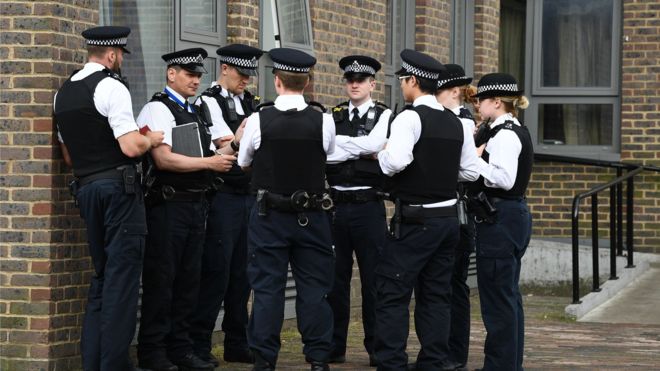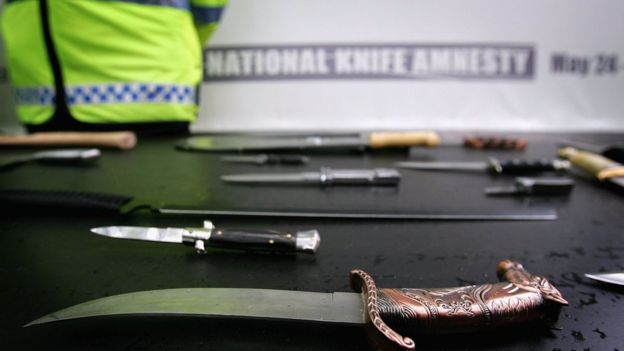Article reposted from
http://retiredandangry.wordpress.com/2014/12/24/the-sound-of-silence/ and the original source
http://www.huffingtonpost.co.uk/chris-hobbs/neil-doyle-british-policing_b_6363724.html?utm_hp_ref=mostpopular
Echoing the anger and annoyance of a number of articles at the lack of respect shown by the Home Secretary Theresa May and the Prime Minister David Cameron following the death of Constable Neil Doyle of the Merseyside Constabulary who was tragically killed in Liverpool six days ago.
May and Cameron are not usually so slow off the mark to show sympathy for the families of fallen officers. The lack of any form of communication from their offices on the subject seems to indicate the contempt with which they now hold the UK Police Service. This is perhaps a truer reflection of what the politicians really think of our boys and girls on the Thin Blue line, regardless of anything they may say to the contrary to serve their own political ends.
Chris Hobbs (Retired Met) article is reprinted here...
Follow Chris Hobbs on Twitter: www.twitter.com/obbsie
With Christmas approaching and a grim New Year in prospect, police officers throughout the UK were plunged into further despair with the news that PC Neil Doyle had died and two of his colleagues had been injured after being attacked following a night out.
Any death of a serving police officer under any circumstances is deeply felt throughout the service but sorrow became mixed with concern as suggestions began to emerge that the three officers had been attacked because they had been recognised by their assailants as police officers.
Whether that emerges as the reason for the attack remains to be seen, but this could hardly come at a worse time for police chief officers as morale continues to plunge with the announcements of additional cuts to policing which will worsen still further the plight of officers working on the front line.
Serving officers would not wish to make what could be described as political capital from the tragic and violent death of a colleague. Yet, within the police service, there has been an undeniable and growing concern that the constant vilification and denigration meted out by politicians and media across the political spectrum and indeed most notably by Home Secretary Theresa May, is having an adverse effect on the behaviour and attitude of those most likely to come into contact with police through criminality or anti social behaviour.
I wrote much of this post on Saturday 20 December and just hours later we heard the tragic news that two New York police officers, Wenjian Liu and Rafael Ramos, had been brutally assassinated by Ismaaiyl Brinsley, apparently in some form of perverse revenge for the deaths of Michael Brown and Eric Garner.
When I returned home from a night out in the early hours of the morning I found the following tweet from New York governor, George E Pataki which read: "Sickened by these barbaric acts, which sadly are a predictable outcome of divisive anti-cop rhetoric." Governor Pataki then named New York Mayor Bill de Blasio and US Attorney General Eric Holder.
I replied thus: "We see this anti-cop rhetoric in the UK. Sadly it comes from the very top of government."
The weekend misery across the police family in both the UK and USA was compounded with the death of Tarpon Springs police officer Charles Kondek, who was shot and later pronounced dead at the Florida Hospital. One man has been arrested.
Officers in the UK are acutely aware of the very real threat posed to themselves on and off duty by UK jihadist fanatics with one alleged plot to kill police in London resulting in five arrests. Attacks on police officers by jihadists have taken place in Australia, the USA and over the weekend in France.
On each and every occasion officers have been injured but have managed to shoot dead their attackers. The catastrophic effect of similar attacks on unarmed British police can only be imagined.
Despite this, single crewing and patrolling remains the default position of most forces and officers are still forbidden to carry discreet protective equipment to and from work, when they feel at their most vulnerable. Discontent with single crewing has been exacerbated by cutbacks which means that in more rural forces 'back up' can be a life threatening distance away. Unarmed UK officers will note that their armed colleagues in New York have now been instructed to patrol in pairs.
Considering the constant stream of adverse comment it is perhaps remarkable that British police still retain a level of support and trust amongst the public that politicians can only dream of. The public however are not fools and can see for themselves either directly or via the plethora of 'fly on the wall' police documentaries the demands placed on front line officers.
Being recognised as a police officer, when off duty, by criminal elements and suffering intimidation, abuse, threats and even assault is not an uncommon experience as I can personally testify. Little wonder then that many officers instruct their children not to reveal their police occupations when attending school for fear of intimidation and bullying while others keep their occupation hidden from neighbours.
Another precarious issue for officers is intervening in incidents when off duty. Every day on numerous occasions, off duty police officers will produce their warrant cards and quietly resolve contentious issues without the need for arrest or indeed the threat of arrest. These incidents will normally be unreported and as such are an unquantifiable factor in keeping the peace on our streets and transport systems.
Not infrequently however, off duty officers will feel compelled to intervene when violent incidents occur without having the benefit of protective equipment, protective vests, radios or even the chance to go through the time consuming process of dialling 999. Indeed most of the frightening incidents I experienced during my 32-year career were off duty and officers have suffered serious injury or even lost their lives when 'stepping up.'
It has not gone unnoticed in police circles that although Neil Doyle died in the early hours of Friday morning, there has been no public comment from Home Secretary, Theresa May seventy two hours after the event. Some officers have made it clear that 'crocodile tears" from 'that woman' would not be welcome in any event while others have observed that her chief preoccupation over the weekend was the return home of foreign students who have completed their degrees.
Perhaps a more damning indictment of the broken relationship between the nation's police and government can be found on the Home Office website where there is, to date, not even the briefest factual mention of PC Doyle's untimely death. There are however two news stories dated 19 and 20 December concerning child abuse and human slavery which clearly demonstrates that the Home Office website is not left in a moribund state over the weekend.
At this moment in time UK officers have to contend with the fact that the edifice of British policing is rapidly crumbling, eroded by both cutbacks and politically expedient bile. Front line officers are discouraged from exposing serious policing shortcomings on social media yet enough comment is visible to see that UK policing is in serious difficulties and heading for meltdown with the additional cutbacks announced by the government recently.
The shambles that exists at UK borders and, however the government may spin it, the crisis within the NHS and social services inevitably places extra burdens on the fractured blue line which also has to endure the blatant disinformation of the government spin machine.
The death of Neil Doyle will place a further dent in police morale yet of course it is still 'business as usual' as far as devastated but committed Merseyside police officers are concerned.
Police force staff surveys and independent studies by bodies such as the University of the West of England show police morale at its lowest ever ebb. These, however, were carried out before the Islamist threats to police, the recent budget cuts and Neil Doyle's murder. Yet amazingly the government remain in denial content to quote dubious 'improving crime figures' as justification for their emasculation of the British policing.
At present, to quote a lyric from Gilbert and Sullivan, it would be true to say that not only is a rank and file UK police officer's lot 'not a happy one' but is becoming downright miserable. A further slightly amended line from the film
Gone With the Wind sums up to perfection the government and in particular Theresa May's attitude to the police front line; 'Frankly officers, I don't give a damn.'
Her department's prolonged silence through the weekend in the wake of tragedy serves only to illustrate the point.
 Getty Images
Getty Images
 Getty Images
Getty Images















